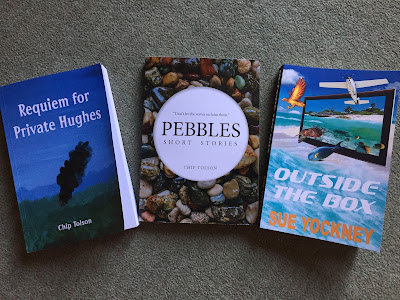My preferred route is to find an agent to represent me. Agents are invaluable. They have the best contacts, know the right editors to submit to and will negotiate the best deal for you. So my first line of attack will be to submit to agents.
Of course this requires research, and I’ve found a few useful ways to track down agents to put on my submission list. Here are a few of them.
• Agents who represent my favourite authors. Most authors will include this information on their websites, plus this has the advantage of giving you an easy way to personalise your submission letter.
• Agents on twitter. Twitter is a really useful resource for this. Lots of agents tweet and it’s worth checking out their profile because they often state if they are building their lists or are looking for a particular genre.
• Agents in the Bookseller. Keep an eye on the Bookseller for announcements about new agents or agencies. Agents move around a lot and a young hungry agent with a reputable agency who is actively building their list goes straight to the top of mine.
• Recommendations – if you are acquainted with an author ask them who their agent is. They’ll be happy to tell you, especially if their agent is a good one.
• Writers and Artists Handbook – really rather an obvious one but included for completeness.
• Online listings – there are a number of these resources, such as agent hunter or query tracker but some do require a membership fee and the focus tends to be rather more US based. Still, they can be a good starting point.
But wherever you find your potential agents please please please check them out thoroughly before submitting. Here are a few things to check for.
• Sales record: Is the agent a deal maker? You should be able to find information on recent deals either on their websites or in the Book Trade literarture. If they don’t have any deals under their belt then maybe they don’t have the right contacts and if so how are they going to sell your book?
• Clients: Who are their clinets? Have you heard of them? Check out their books. Even ask them about their agents.
• Experience. Be wary of the agent who pops up out of nowhere and who doesn’t provide any information of where they previously worked in the industry.
• Fees. Never pay any fees to an agent at all! No reputable agent these days charges a reading fee.
• Affiliation of professional organisations. For example in the UK check to see if they are a member of the Association of Author’s Agents. No necessarily a red flag but a good indicator.
Remember, a bad agent is worse than no agent and sadly there are scammers out there who would happily part you from your money. But if you’ve written a saleable book and you’ve done your research then you should be fine. I hope we all find the agent of our dreams.











